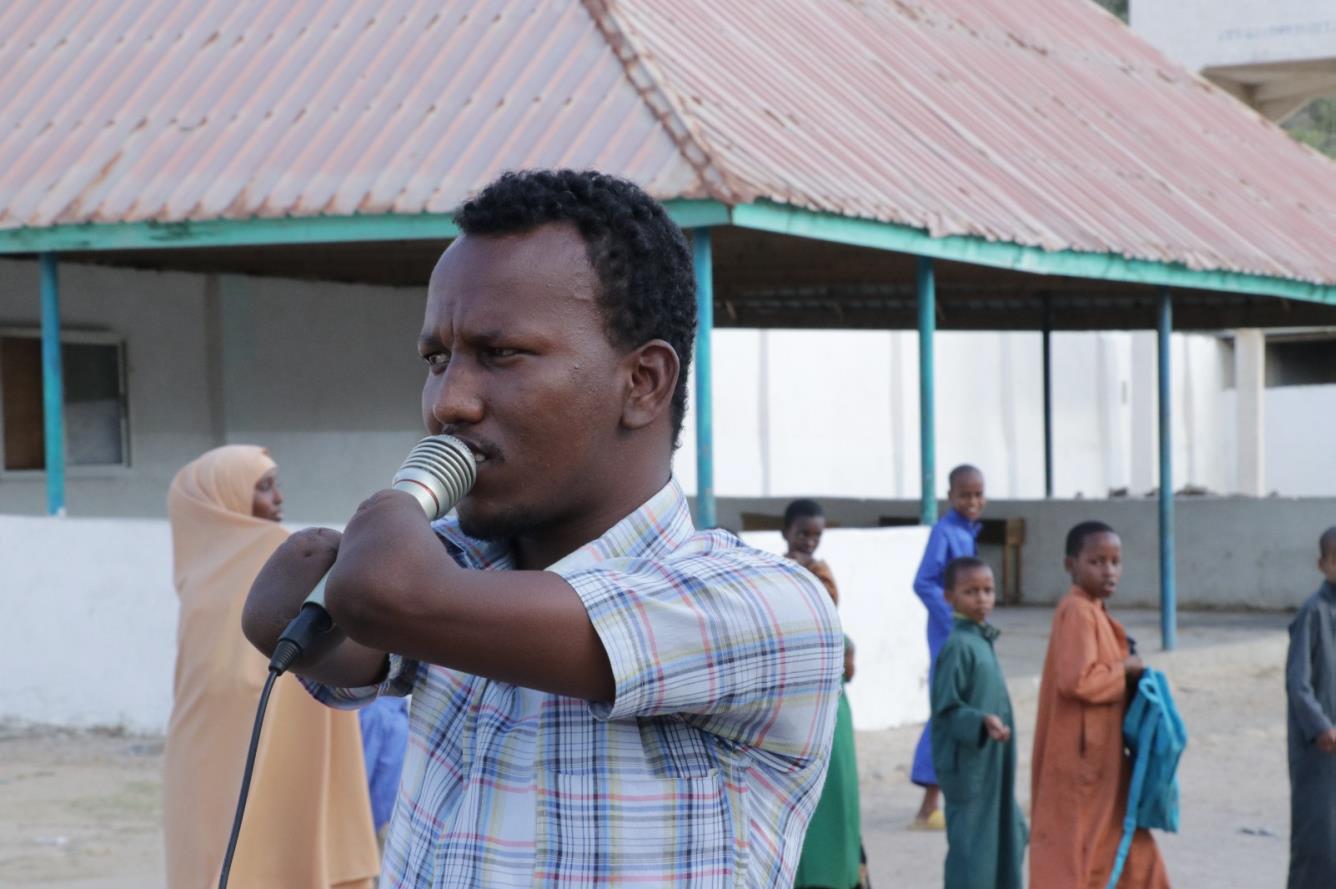“I am a living example of forgiveness”
A tragic accident in Abdirizak Warsame Ahmed’s childhood caused him to lose both of his hands. Instead of being discouraged, he turned the accident into a resource. The boy with no hands grew up to be a man who now lives in Mogadishu and travels around Somalia spreading the message of hope and peace. Ahmed is a participant in the Foreign Ministry’s pro-peace communication project.

When he was a little boy, Abdirizak Warsame Ahmed herded sheep. One day the sheep ran away. As a punishment, Ahmed’s aunt tied his hands with a rope. She left and forgot all about him, and only 17 hours later someone untied him and Ahmed was rushed to the hospital. The rope around 8-year-old Ahmed’s hands was so tight that his hands had become paralysed and infected. The following morning, his hands had to be amputated.
That was the beginning of a new life for Ahmed. For a long time it seemed that a boy with no hands did not have much of a future in Somalia. But things took a different turn when Ahmed decided to forgive his aunt. This was the beginning of a story that Ahmed now wants to share with young people in Somalia.
“It is important to remember that we all make mistakes. That is why we have to learn to apologise and forgive. I want to tell young people that I was able to overcome all challenges and that I have forgiven the person who caused me to lose my hands.”
With support from the Communications Department of the Ministry for Foreign Affairs, a documentary on Ahmed was filmed last year and was broadcast on Somali TV channels. Ahmed’s compelling story has made him famous in Somalia. He has been asked to speak at various events and interviews, especially in Mogadishu.
This year, Ahmed travelled to Kismanyo, a city in the southern part of Somalia, where he spent three days visiting schools as part of the Foreign Ministry’s project. He talked about reconciliation and forgiveness to hundreds of young people. The school visits were also filmed and turned into a documentary.
Media plays a major role in Somalia
The Ministry for Foreign Affairs’ project has provided content for the Day of Forgiveness, which is celebrated in Somalia and Somali communities around the world on 28 June. The person behind the idea for the Day of Forgiveness and the Foreign Ministry’s campaign, and in charge of all the practical arrangements involved, is a Finnish[VL(1] journalist and media professional Wali Hashi.
“One day the project will come to an end, but thanks to Ahmed and other young peace ambassadors like him, work for peace and forgiveness will continue,” Hashi says.
According to Hashi, the most effective way to spread the message of forgiveness is through media, especially social media.
“Somalia is a country with a strong oral tradition; this means sharing a story, drama, music and poetry through the media is essential for spreading and disseminating culture, knowledge, values and attitudes. Social media allows different ideologies to spread like wildfire. Different media feed an enormous amount of information to young Somalis, largely because the country’s education system has not yet recovered from the long civil war,” Hashi explains.
Future plans for the project include youth discussion programmes, workshops and music production. The Ministry for Foreign Affairs and Hashi plan to continue their communications campaign in Somalia until 2023.